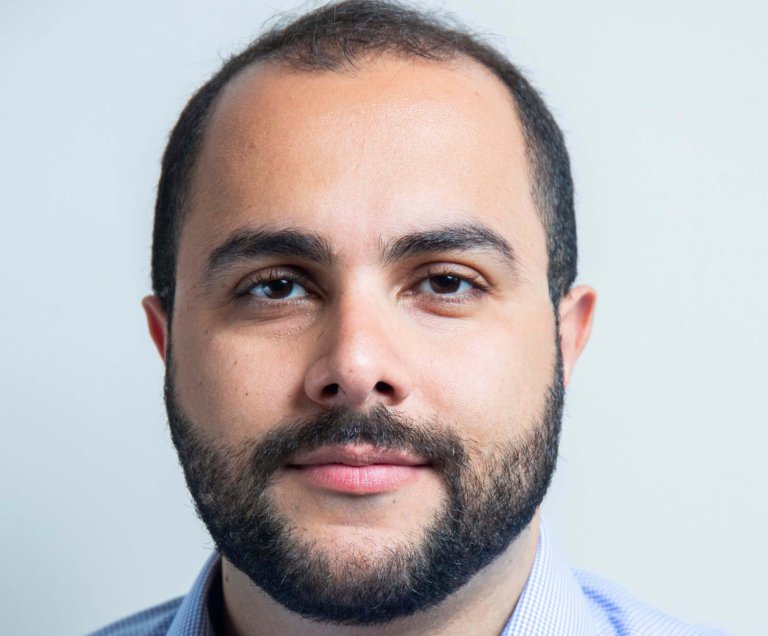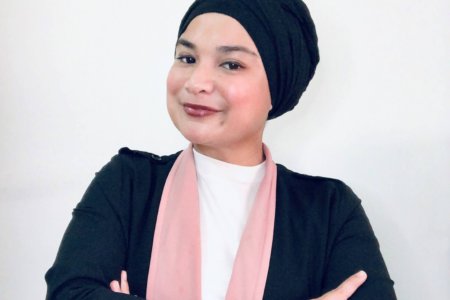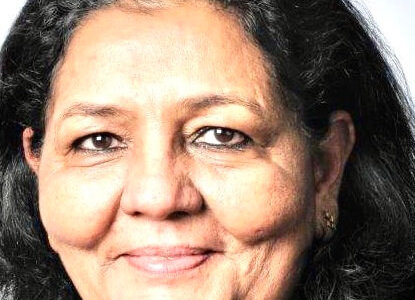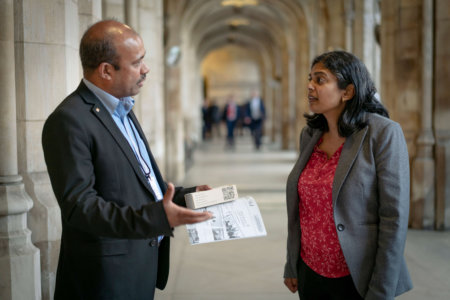
The Chevening Clore Leadership Fellowship is a programme that funds mid-career professionals in the arts and culture sector to undertake an individually tailored leadership programme in the UK. Eduardo Carvalho from Brazil won this Chevening Fellowship after impressing judges with his career that spanned journalism, app development and museum curating.
His leadership in these fields stood out. As the artistic editor of the Museum of Tomorrow in Rio de Janeiro, he developed award-winning exhibitions and experiences that engage the audience. One of his projects — “Food for Tomorrow: Feeding 10 Billion” — won him the Bronze Medal at the Grands Prix (formerly known as the International Design and Communication Awards).
His work as a news journalist brought him to countries like Mexico, the Netherlands, Peru, and Germany to cover stories. He also got to visit Antarctica to write about how Brazilian scientists worked there.
View this post on Instagram
He also shares his journey from Brazil to the UK and what hotel quarantine is like for forthcoming students on the Chevening Blog.
We caught up with Carvalho to learn more about his fellowship thus far:
Tell us about your Chevening Fellowship and the application process.
The Chevening Clore Leadership Fellowship is a tailored programme of leadership development to enrich and transform cultural practice and engagement. This is done by developing leadership potential, acumen and skills.
This programme will support you to be the leader you have the potential to be through in-depth learning that is uniquely tailored to your individual needs, aspirations and circumstances.
The initial process for the application is the same as many others. Fill in a form, write essays and go through interviews. However, Clore applicants need to write more than three essays and will be interviewed more than once. In the end, I wrote seven essays and had to go through two interviews with different themes and aspects.
Now in London, I’m working at Somerset House helping to develop their sustainability policy and I also make connections in the creative economic and cultural areas. My focus is to understand some aspects of the activities organised in the UK and their benefits to society.
Especially in experiences or exhibitions focused on edutainment — a concept that calls the audience to action and to transform society.
Tell us a bit about your role as a journalist, co-curator and your educational experience.
I’m a journalist in science communication and I have a master’s in management of creative clusters. As a journalist, I’ve worked with environmental, scientific, and social justice projects since 2010.
As a reporter and editor for Globo Media Group, the largest broadcast media channel from Latin America, I wrote news stories on the environment, science, and health themes. Furthermore, I had professional experience abroad covering stories in Mexico, the Netherlands, Peru and Germany.
One unique opportunity was my travels to the Antarctic continent to show how Brazilian scientists worked at the official base. In 2015, the Museum of Tomorrow in Brazil invited me to be part of the content team responsible for creating exhibitions and experiences.
As artistic editor and assistant curator of this institution, I had the chance to develop several exhibitions focused on engaging the audience in social themes. This included climate change, conviviality, culture, environment conservation and refugees. I also had the opportunity to make partnerships with organisations from all over the world including the UN Refugee Agency.
Among my main works are the exhibitions: “Coronacene — Thoughts in Pandemic Times,” “Amazon — the exhibition,” (opening this year) “Food for Tomorrow — Feeding 10 Billion,” and “Inovanças – Creations Brazilian Style” (that had half a million visitors within 10 months).
I was also involved in IRIS+, an experience with AI in collaboration with IBM Watson. This experience was quoted by the New York Times as an example of innovation inside museums around the world.
To add to that, I also led the development of 17 virtual exhibitions on the Google Arts and Culture platform and a VR experience called “Amazonia” in partnership with Miami Dade College in the US with consultancy from the indigenous group Yanomami.
View this post on Instagram
Last year, I coordinated the Brazil Forum UK, a conference created and organised by Brazilian students in the UK. The event has been happening since 2016 at the London School of Economics and Political Science and the University of Oxford.
Due to the pandemic, we transformed the forum into a virtual-first event that reached half a million viewers. I supported the partnerships team and coordinated the broadcast of the 2020 edition.
How do you use the knowledge and skills gained during your Chevening Fellowship?
One of the essential skills I’ve learnt was networking. I’m a people person so I’m used to getting to know and talking with different people throughout my whole life due to my career. After Chevening and the connections I made through my travels, meeting and friends, my network increased considerably — I’m very fortunate to have these contacts.
What were the practical learning elements in your programme? Do you get to apply the theories you gained in these experiences in your current job role?
During this programme, I have a mentor, a professional coach, loads of meetings and residential periods where I can also choose to do some trips and courses to learn more. It’s valuable to exchange knowledge with my cohort (25 people mostly from the UK including people from Egypt, China, Hong Kong, South Africa, and India). I’m the only Latin American in this group. We’ll finish in 2022 because of COVID-19.
Do you have any advice for international students looking to apply for a Chevening Fellowship?
For the scholarship, I recommend you to be yourselves in the application and the interview. Chevening looks for authentic people with big dreams and who take action to pursue transformation goals.
In 10 years, where would you like to be living and doing?
That’s a tricky question. After the pandemic, I stopped planning for the long term and started living each day, one by one. For now, I’m enjoying life in the UK as it’s crucial to maintain good mental health.










